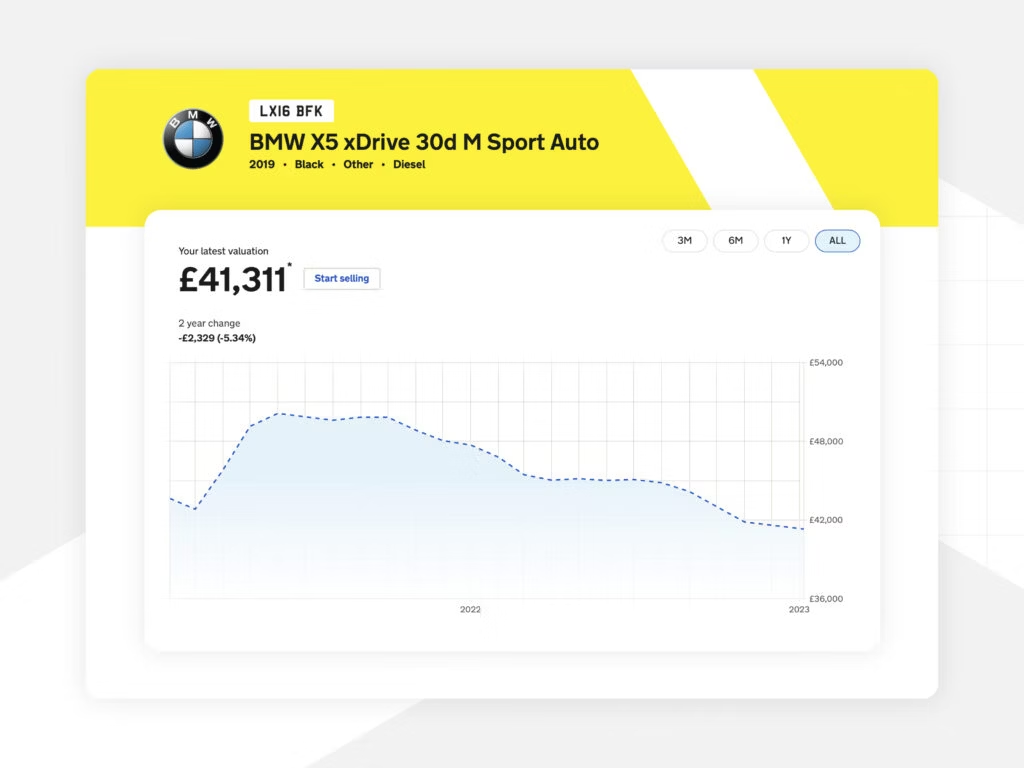How long do car batteries last?

Car batteries are the unsung heroes of our vehicles, powering our journeys and supporting our car’s electrical system to make sure we have a safe, smooth, and comfortable ride.
All cars have batteries, not just Electric Vehicles. A three to five-year battery lifespan is typical for petrol and diesel vehicles, while EV batteries usually last between 8 and 15 years. However, these estimates hinge on important factors such as climate, driving habits, and maintenance.
Regardless of wehther you’re simply keeping your vehicle in top shape or you’re gearing up to sell your car, if you begin experiencing battery issues, replacement is key to ensuring the safety and longevity of your vehicle.
Having a quality car battery running at full or close to full capacity also helps you get the best possible price for your vehicle.
In this guide, we’ll explore factors impacting car battery longevity, common battery issues, and ways to maximise your battery.
- Car battery 101
- How much does a faulty car battery devalue a car?
- Car battery replacement
- Maximise your car battery lifespan
- FAQs

Car battery 101
Your car battery is your vehicle’s initial energy source, kickstarting the engine and supporting electrical functions. Regularly checking your battery’s health and addressing warning signs can help extend its life. If your battery has a fault or loses capacity, you’ll have to replace it.
Proactive battery maintenance is central to extending its lifespan. Prevent premature wear with regular corrosion checks, electrical connection evaluations, and fluid level monitoring. Charging your battery appropriately, especially after long periods of inactivity, to preserve its health. Employing a smart charger or investing in a battery tender during periods of non-use also safeguard against discharge.
Climate also plays a role. In colder regions, batteries endure increased strain due to heightened power demands. Cold temperatures slow down the chemical reactions essential for battery function, while heat accelerates internal corrosion. To increase your battery’s resilience against the elements, adopt preventive measures such as insulation or use climate-specific batteries options.
Understanding your battery’s predicted longevity helps you:
✅ Avoid unexpected breakdowns – Knowing your battery’s age and warning signs helps you replace act before it goes completely flat and leaves you stranded.
✅ Optimise performance – Having a battery at full capacity ensures that your vehicle’s electrical components function optimally, preventing unexpected glitches and expenses.
✅ Be cost-efficient – Proactively replacing batteries saves you from emergency purchases, allowing you to explore cost-effective options that fit your budget.
✅ Be environmentally conscious – Disposing old batteries properly minimises environmental harm. Being aware of your battery’s lifespan promotes responsible recycling.
✅ Have peace of mind – Understanding your battery’s lifespan provides peace of mind, letting you confidently plan for replacements before it goes completely dead.
How much does a faulty car battery devalue a car?
The extent to which a faulty car battery can devalue your car varies depending on the car’s age, overall condition, and the extent of the battery issue.
Generally, a faulty battery might result in a minor depreciation in your car’s overall value – roughly between 1% to 5% – if it’s a relatively inexpensive fix. However, potential buyers might use this as a negotiating point to lower the price or ask for repairs before finalising the purchase.
Battery issues are more likely to contribute to a depreciation in car value if they’ve spurred other problems with your vehicle. This is especially true for older cars or those with a history of mechanical problems as faulty batteries may contribute to the perception of additional and extensive issues. It’s essential to get an assessment from a mechanic to determine if the faulty battery has affected other car systems.
For a free and instantaneous vehicle value check, try Motorway’s Car Value Tracker, which allows you to assess the value of up to six cars at once.
Common battery problems
Staying on top of your car’s battery health is best practice for car owners, and will help you get the best price if and when you decide to sell your vehicle.
The following table details common signs of battery issues. Proactively addressing these indicators prevents unexpected breakdowns and ensures reliable driving.
| Signs | Possible implications |
| Slow engine crank | Weakened battery, inadequate power supply. |
| Diminished headlights | Insufficient power reaching lighting systems; may signal future additional electricity issues with the vehicle. |
| Electrical component malfunctions | Battery struggles to support various vehicle functions. |
| Dashboard warning lights | Electrical issues – fuelled by the car battery – that require attention. |
| Unusual odours | Internal damage, potential battery failure. |
| Swollen battery case | Internal battery issues, immediate need for replacement. |
| Parasitic discharge | Engine and other vehicle components utilise battery power while the vehicle is off. Can lead to a dead battery if not drained. |
| Visible cracks or leaking | Internal battery issues, immediate need for replacement. |
Additionally, weak batteries can sustain damage from jump-starting. Improper jump-starting can cause voltage spikes, damaging electronic components and potentially resulting in electrical malfunctions or complete battery failure. To prevent jump-starting damage, follow proper procedures, ensure correct cable connections, and consult the vehicle’s manual for guidance.
While maintenance helps batteries operate to their full potential, age also takes its toll on car batteries. Batteries wear down when approaching the end of their lifespan.
If you’re uncertain about what’s wrong with your battery, seek professional diagnostics. Automotive service providers can conduct voltage and load tests to identify hidden issues and offer tailored solutions for what’s best for your vehicle.
Car battery replacement

Car batteries are hugely important in any vehicle, but especially in the case of battery-electric vehicles (EVs) – their high performance is crucial to getting the car started and experiencing your full range.
While battery replacement costs vary, replacing damaged or dead batteries is necessary to keep your vehicle on the road, both in terms of car functionality and passing required MOT inspections.
When replacing your battery, keep the following factors in mind:
- Group number: Match to your vehicle’s specifications for proper fit and compatibility.
- Cold cranking amps (CCA): Consider climate; higher CCA ratings are crucial in colder regions.
- Reserve capacity (RC): Higher RC values indicate better power provision over an extended period.
- Maintenance requirements: Choose between maintenance-free and low-maintenance options.
- Warranty: Longer warranties signify the manufacturer’s confidence in durability.
- Insurance coverage: As most UK car insurances see battery replacement as part of routine maintenance, they typically do not cover battery replacement. However, read your policy carefully.
Maximise your car battery lifespan
✅ Regular inspections and cleaning
Routinely inspect and clean battery terminals to prevent corrosion and ensure a secure electrical connection. Corrosion can hinder performance, accelerate battery wear, and reduce battery life below the estimated lifespan.
✅ Maintain proper electrolyte levels
The simple but crucial task of maintaining the correct electrolyte levels in battery cells prevents damage to internal battery components, preserving the battery’s efficiency and extending its overall lifespan.
✅ Take care during periods of non-use
Car batteries wear down faster during extended periods of non-use. If you’re not driving for a while, employ a trickle charger or float charger to provide a low, consistent charge to your battery. This method prevents battery discharge and degradation, helping ensure that your battery remains healthy and ready for action.

FAQs
How do I know when my car needs a new battery?
If your car’s engine starts cranking or struggles to start, your headlights dim, or you experience electronic issues, it may be time for a new battery.
Can a car battery last 10 years?
Car batteries typically last three to five years. While rare, some may last up to 10 years under optimal conditions, however regular maintenance and replacement are advisable for reliability.
How long should a car battery last without driving?
The car battery life typically lasts one to two months without driving. Regular vehicle use helps maintain your battery’s charge. Extended periods of inactivity may lead to discharge, shortening the battery’s lifespan.
How long do car batteries last in electric cars?
Electric car batteries can last 8 to 15 years, depending on usage, charging patterns, and technological advancements.
How can I track the value of my car?

If you’re not sure what your car’s value is to begin with, it’s hard to know how much money a faulty or replaced battery might take off the price.
All vehicles depreciate at varying rates, with no rule of averages accurately describing any one car’s changing value. Motorway’s Car Value Tracker provides a free, reliable monthly price alert for up to six vehicles at once.
Follow changes to your car’s value to choose the best time to sell, and make informed choices about investments in your car’s maintenance.
Need to sell your car?
Want to learn more about owning, maintaining, and selling your car? Check out more of our guides here, covering everything from Clean Air Zones to car tax, and plate changes to part exchange.
The information provided on this page is for general informational purposes only and should not be considered as professional advice.